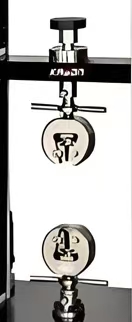What Are You Looking For?
What Are You Looking For?
In the manufacturing and quality control process of electrical products, the reliability of wires and cables is of utmost importance. The Mechanical Bending Tester emerges as a crucial device that allows manufacturers to assess the bending endurance of these essential components. This article provides a detailed introduction to the Mechanical Bending Tester, highlighting its key features and parameters.
Item No. :
HJ-IEPTE-005Minimum Order Quantity (MOQ) :
1 setPayment Method :
L/C,T/T,PayPalPrice :
NegotiatableProduct Origin :
TurkiyeSupply Ability :
1 sets per 2 monthLead Time :
60 Working DaysConventional packaging :
Plywood
In the manufacturing and quality control process of electrical products, the reliability of wires and cables is of utmost importance. The Mechanical Bending Tester emerges as a crucial device that allows manufacturers to assess the bending endurance of these essential components. This article provides a detailed introduction to the Mechanical Bending Tester, highlighting its key features and parameters.
Overview of the Mechanical Bending Tester
The Mechanical Bending Tester is designed to simulate the repeated bending that wires and cables may experience during installation, operation, or maintenance. By subjecting the test samples to controlled bending cycles, it helps determine their ability to withstand mechanical stress without failure. This enables manufacturers to ensure the durability and long-term performance of their products in real-world applications.
|
Testing Parameter |
Description |
Importance |
|
Bending Angle Range |
Achieves a wide range of bending angles, from [min angle] to [max angle], mimicking different usage scenarios. |
Enables comprehensive evaluation of flexibility and bending resistance. |
|
Bending Speed Adjustability |
Precisely adjusts the speed of bending, ranging from slow for careful handling to high for dynamic situations. |
Tests material response to different bending rates, optimizing design for specific needs. |
|
Number of Bending Cycles |
Sets a specific number of bending cycles, ranging from dozens to thousands or more. |
Thoroughly assesses long-term durability and reliability. |
|
Sample Clamping Mechanism |
Equipped with a reliable clamping system for wires and cables of different diameters and shapes. |
Enables testing of various wire and cable geometries, facilitating comprehensive quality control. |
The testing process begins with carefully preparing the wire or cable sample. The sample is inserted into the clamping mechanism of the Mechanical Bending Tester and properly secured. The desired bending angle, speed, and number of cycles are set according to the test requirements. Once the test starts, the machine automatically performs the bending operations. During the test, the condition of the sample is continuously monitored for any signs of cracking, breaking, or other forms of damage. After the completion of the specified number of cycles, the sample is examined in detail to evaluate its integrity and performance. Based on the test results, manufacturers can make informed decisions about the suitability of the wire or cable for their products and take appropriate measures to improve its quality if necessary.
Enhanced Product Quality: By subjecting wires and cables to rigorous bending tests, manufacturers can identify and eliminate any potential weaknesses in their products before they reach the market. This significantly improves the overall quality and reliability of electrical appliances, reducing the risk of failures during operation.
Compliance with Standards: The use of the Mechanical Bending Tester helps manufacturers ensure that their products comply with industry standards and regulations related to wire and cable durability. This is essential for market access and maintaining a good reputation in the industry.
Cost Savings: Early detection of bending-related issues through testing allows manufacturers to avoid costly product recalls, repairs, or replacements. By optimizing the design and quality of wires and cables, they can also reduce material waste and production costs in the long run.
Improved Customer Satisfaction: Products that incorporate wires and cables tested withthe Mechanical Bending Tester are more likely to perform reliably in the hands of consumers. This leads to increased customer satisfaction and loyalty, enhancing the brand's competitiveness in the market.

In conclusion, the Mechanical Bending Tester is an indispensable tool for manufacturers in the electrical industry. Its ability to accurately assess the bending endurance of wires and cables under various conditions makes it a valuable investment for ensuring product quality and reliability. With its advanced features and parameters, it empowers manufacturers to produce high-quality electrical products that meet the demands of modern consumers.
Hot Tags :